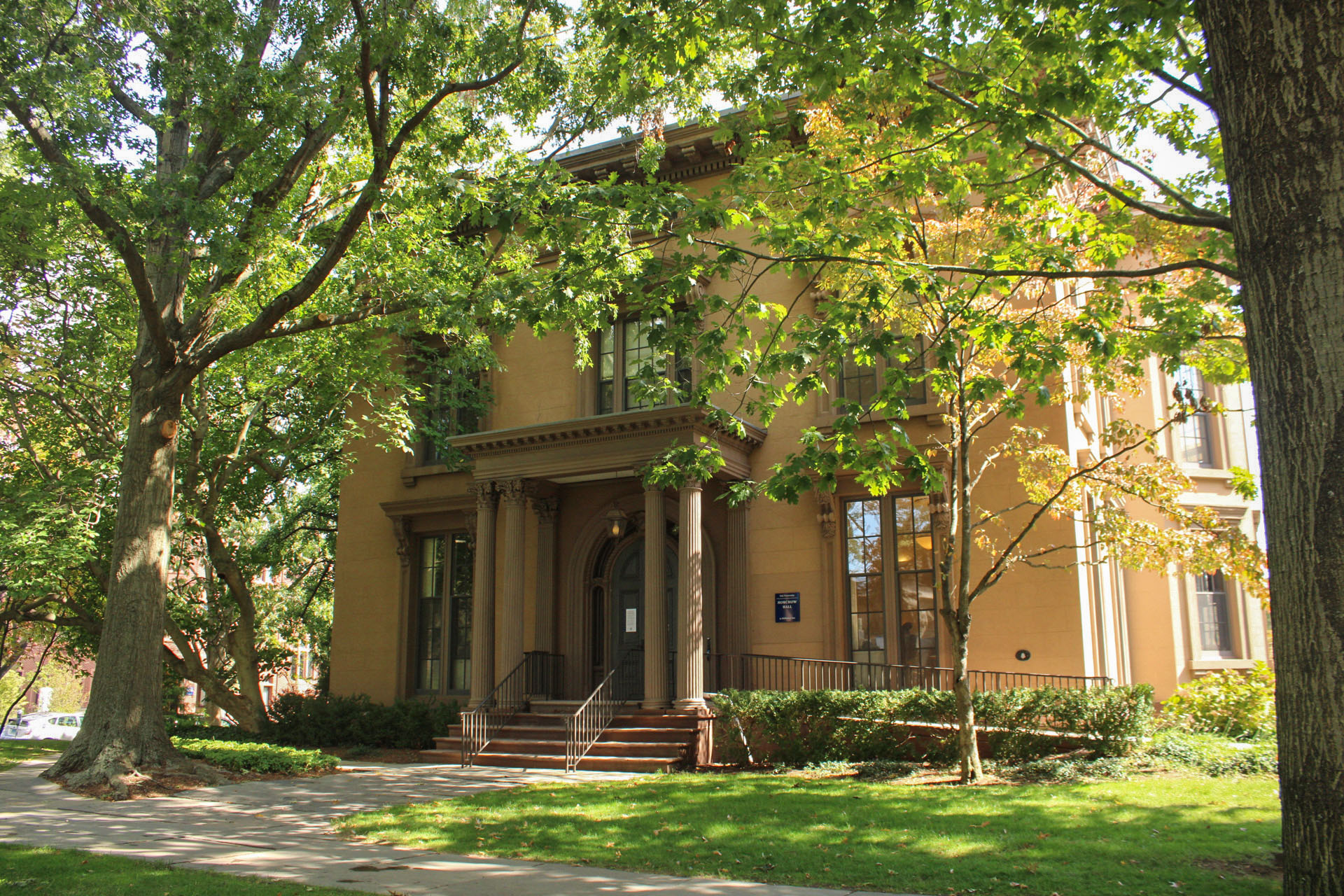University reaches fundraising target, announces fall 2022 opening of Jackson School of Global Affairs
The Jackson School of Global Affairs will be the first new professional school established at Yale in more than 40 years.

Yasmine Halmane, Staff Photographer
The Jackson Institute of Global Affairs has hit its fundraising target and will open as a school in fall 2022, becoming the first new professional school established at Yale in more than 40 years, University President Peter Salovey announced Tuesday.
Plans to transition the current Jackson Institute to a degree-granting school were first announced in 2019, with an expected opening in fall 2022 once it met a fundraising target of $200 million for its endowment. Its opening will mark the first new professional school created at Yale since the establishment of the School of Management in 1976. James Levinsohn, who has served as the director of the Jackson Institute since its establishment in 2010, will be the inaugural dean of the new school, beginning his tenure on July 1.
“It’s a stronger commitment to multidisciplinary scholarship and teaching than ever before,” Salovey told the News. “The impact this will have on the world through the students who receive an education through the scholarship that the Jackson School is involved in and through the practical policy advice that it can provide is going to be tremendous and will ramify — yes, it will ramify Yale — but more importantly, it will solve problems in the world.”
Following the University Board of Trustees’ approval to establish the new school in 2019, a Jackson Transitional Board was formed to work on faculty recruitment and curriculum development. In preparation for the school’s opening over the last three years, administrators created the new Master of Public Policy degree program and implemented changes to the institute’s curriculum.
Under Levinsohn’s leadership, the Jackson Institute launched the undergraduate Global Affairs major, the Kerry Initiative and the Johnson Center for the Study of American Diplomacy, among other initiatives. The Jackson Institute has also incorporated several Yale programs including the Maurice R. Greenberg World Fellows Program, the Leitner Program on Effective Democratic Governance, the Global Health Studies Program and International Security Studies. Most recently, the Schmidt Program on Artificial Intelligence, Emerging Technologies and National Power was announced — a new initiative of International Security Studies at Yale.
“Yale has for generations turned out incredibly impactful leaders in the policy space and now we will have a school that will be training them. I’m confident that Jackson will be convening the top talent in the world,” Levinsohn told the News. “We have the chance here to create a new school from the ground up, and that is an opportunity that is rare.”
Levinsohn emphasized that the new school will be integrated with other professional schools at Yale, as well as the Faculty of Arts and Sciences at Yale College. Newly-recruited faculty will hold joint appointments with the Jackson School and another Yale school or department. The school also plans to have policy practitioners, rather than traditional academic professors, teach some of its courses.
Levinsohn said that at least three more faculty will arrive in the fall, including Amit Khandelwal, an international economist at Columbia University. Two other faculty who are currently at Yale, Lorenzo Caliendo at the Yale School of Management and Penny Goldberg in the economics department of the Faculty of Arts and Sciences, will move half of their appointments to Jackson and join the governing faculty.
He said that the upcoming curriculum, which will be rolled out in the fall, is an “innovative and new approach,” noting that the new school will leverage Yale’s strong history department to create a program that is more history-focused than programs at other schools of public affairs.
Jackson has also acquired two buildings on Hillhouse, T.M. Evans Hall and Steinbach Hall, for the new school.
Both Salovey and Vice Provost of Academic Initiatives Pericles Lewis pointed to Levinsohn’s achievements as the institute’s director in Yale’s decision to name him as dean.
“[Levinsohn has] put in an amazing amount of effort over more than a decade now to get us from the idea of an institute, which is a relatively small thing with a few faculty attached to it, […] you know, get to build that up to the point where now it’s going to be a full school with a wide ranging faculty, programs at both the undergraduate and graduate level, and all the other things that go with a school,” Lewis said.
Salovey echoed Lewis’ sentiments, adding that Levinsohn “took the Jackson Institute from nothing to something that has been quite remarkable in quite a short amount of time.”
Levinsohn said that he hopes to leverage Yale’s portfolio of professional schools and attract the best young talent from around the globe, who have shown a “commitment to service” and who have “got us to where we are today.”
“One of my immediate reactions is simply one of gratitude,” Levinsohn said. “It wasn’t preordained that the Jackson Institute would get to where it is, and Yale’s leadership, as well as you know, an army of donors and the vision and support of John and Susan Jackson — a lot of people have worked to get us to this point and it’s a real privilege to get to launch things from here.”
The Jackson Institute was established in 2010 through a $50 million donation by John Jackson ’67 and Susan Jackson. The Jacksons also made a significant donation to launch the Yale Jackson School of Global Affairs through the Liana Foundation.







